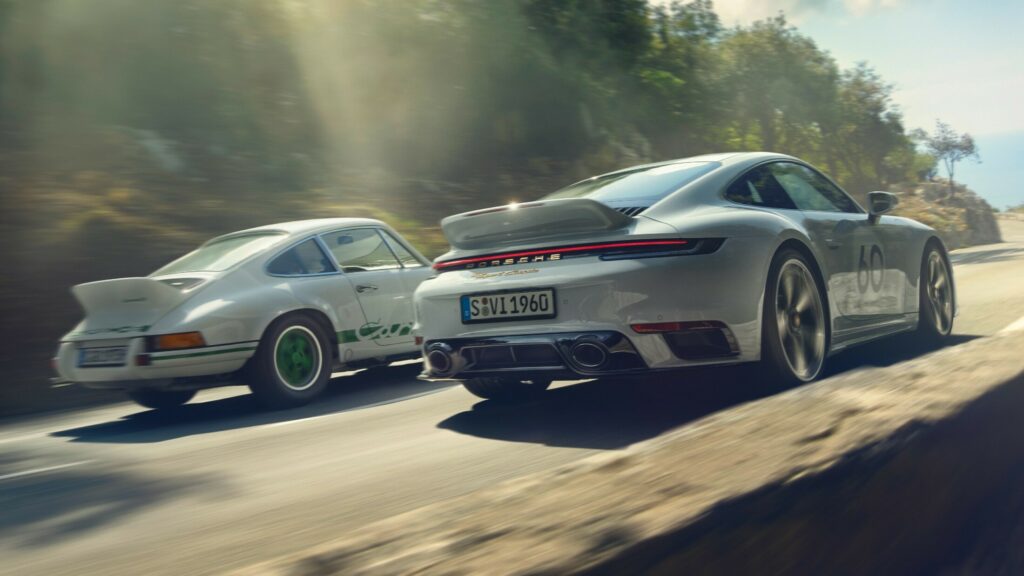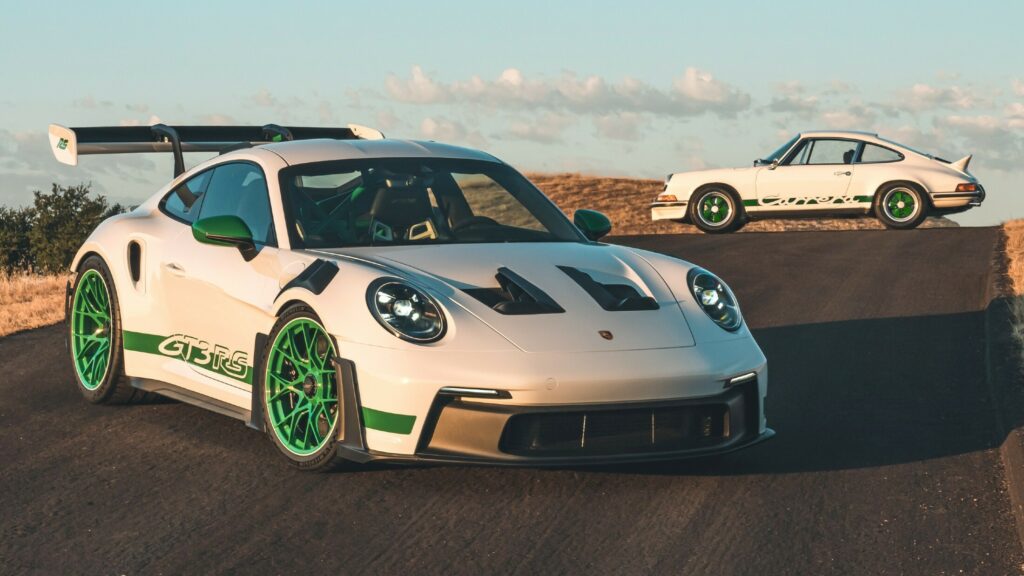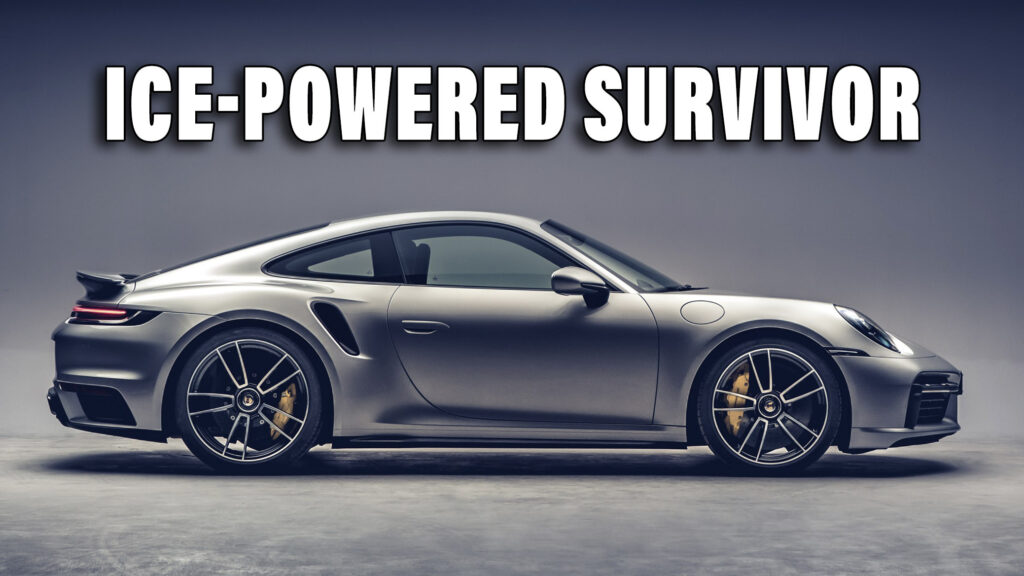Porsche plans on keeping the 911 as its sole model series fitted with a combustion engine after gradually electrifying the rest of its lineup. The automaker is also investing in e-fuels in a quest to keep ICE alive for longer.
Karl Dums, who is responsible for e-fuels development at Porsche, admitted that their “strategy in the first place is switching to electric mobility” but said they will produce the 911 with a combustion engine for “as long as possible”. The current 992 generation is up for a mid-lifecycle update later this year, with a rumored introduction of a self-charging hybrid variant in the second half of the decade.
More: E-Fuels Could Keep The Gas Car Relevant As An Electric Future Looms

As reported by Reuters, Porsche wants EVs to account for 80% of its sales volume by 2030. The 911 accounted for 13% of Porsche sales in 2022, so this goal sounds plausible with all other models being EVs by then.
The next electric Porsche after the Taycan will be the 718 Boxster/Cayman, closely followed by the Macan and the Cayenne SUVs which are the brand’s best-sellers. The automaker plans on keeping the ICE-powered Macan and Cayenne in production for the next few years, although all of the non-911 combustion models will be gone by 2030.
Investing in E-Fuels
In order to keep the combustion engine alive for longer, Porsche invests in e-fuels, a strategy that is kept separate from its EV plans. The automaker hopes that the EU will allow sales of combustion vehicles using e-fuels after 2035. However, experts suggest that e-fuels, which are currently aimed at the aviation and heavy vehicle industries, will be more suitable for niche products like high-end supercars and hypercars due to their high price.
Despite emitting CO2, e-fuels can be carbon-neutral thanks to their production process which includes captured carbon dioxide and renewably-sourced hydrogen. Porsche has already invested over $100 million in the energy company HIF Global from Chile, which aims to start construction of the world’s largest e-fuels plant in 2024 in Matagorda, Texas.
High-end brands like Porsche and Ferrari alongside smaller-scale manufacturers like Morgan and BAC might have resorted to e-fuels, but mainstream automakers will likely keep ignoring them in favor of electrification. According to Reuters, Pitchbook reports that major automakers have already invested $1.2 trillion for electrification, while e-fuel startups have attracted less than $1 billion in investments.





